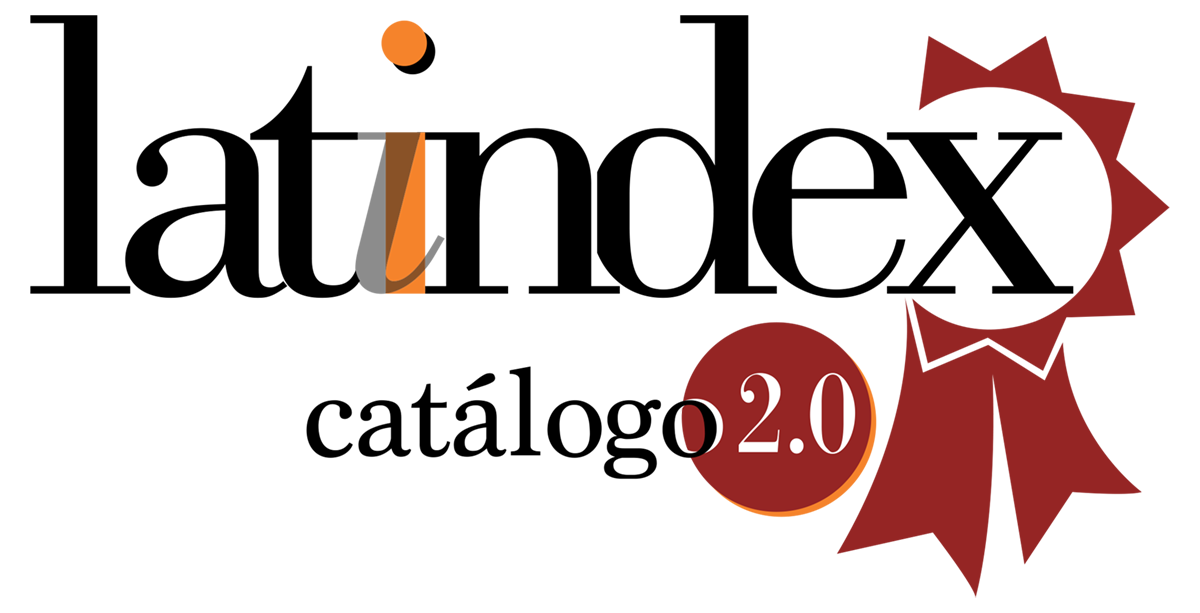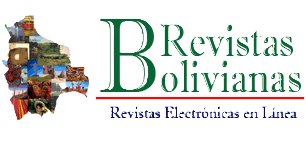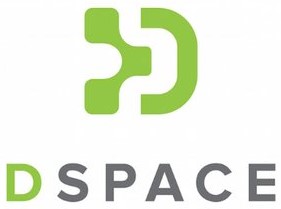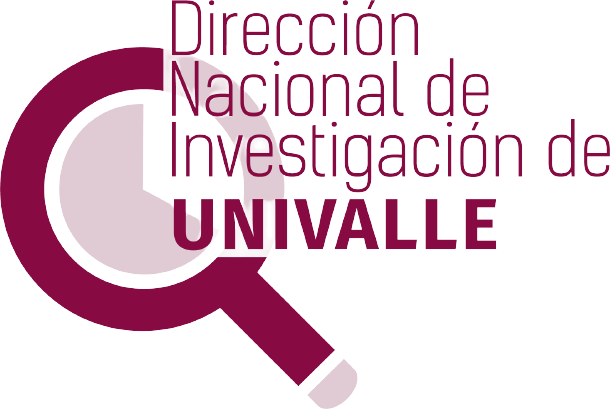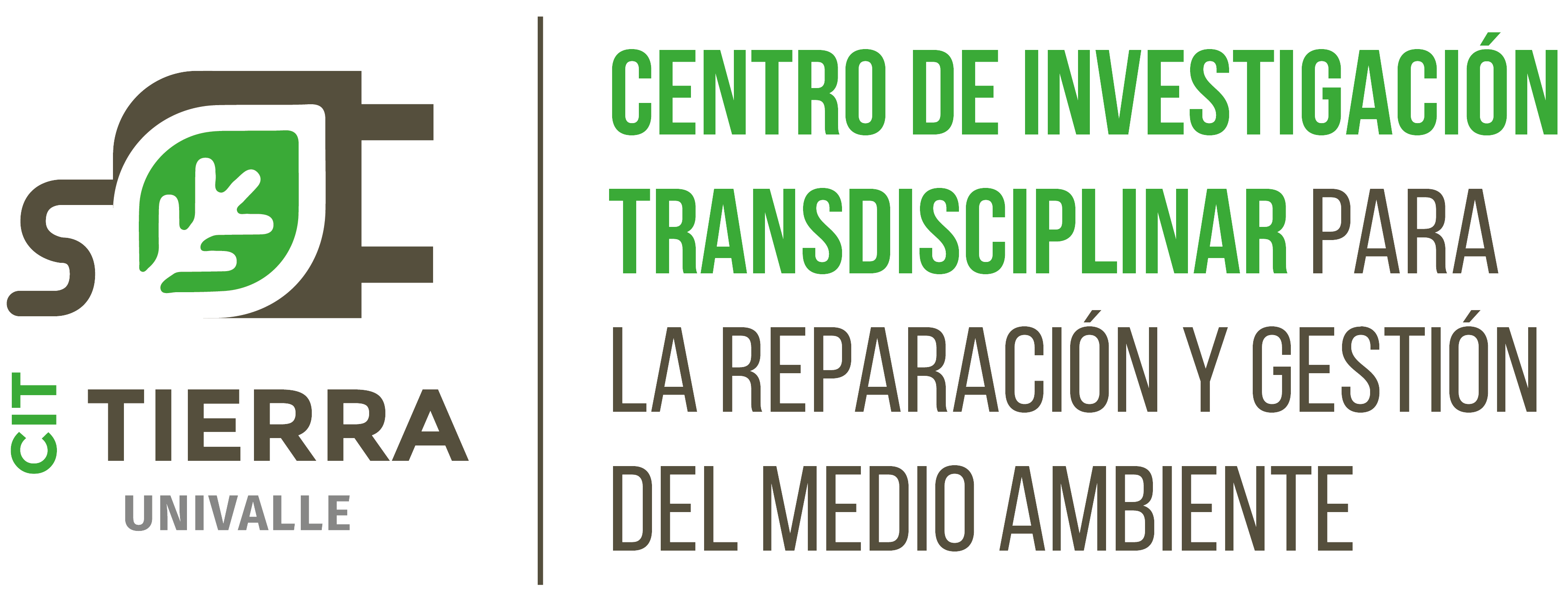Proposal of a Training Process for Teachers in Learning Environments Design Through ICTs for Mathematics: A Case Study Through Systemic Approaches
DOI:
https://doi.org/10.52428/20758944.v10i32.735Keywords:
Teacher training, Using technology in teaching, Teaching-learning SystemsAbstract
This research aimed to make a proposal far training teachers in designing learning environments with ICT for math teachers carrying through a sensitization process in their role as designers of learning environments in addition to its role as facilitators. For this, the state of art related to teacher training analyzing conventional methods of teachinglearning and its relation to the incorporation of ICT was reviewed. The study of different methodologies related to learning and the formalization of the processes of teaching is promoted through Educational Modeling Languages. Therefore, this research had as main aim to plan a process of teacher education through systemic design environments for ICT.
Downloads
References
(1) MINISTERIO DE EDUCACIÓN DEL ESTADO PLURINACIONAL DE BOLIVIA, 2011. Ciencia y tecnología. [Online] Disponible en: http ://www.cienciaytecnologia.gob.bo/vcyt2012/uploads/ley _ 164 ley_ge neral_ de_ telecomunicaciones_tecnologias_de_información_y_comunicación.pdf
(2) MINISTERIO DE EDUCACIÓN DEL ESTADO PLURINACIONAL DE BOLIVIA VICEMINISTERIO DE CIENCIA Y TECNOLOGÍA, 2012. educabolivia. [Online] Disponible en: http://computadora.educabolivia.bo/index.php?option=com_content& viewearticle.Side79 :sobre el programa&catid=81<emid=644 [Accedido 8 noviembre 2013).
(3) UNESCO, 2004. Las tecnologías de la información y la comunicación en la formación docente, Francia: TRILCE.
(4) pieb, 2013. Las laptop entregadas a los maestros de unidades educativas son subutilizadas, señala un estudio. [Online] Disponible en: http://www.pieb.com.bo/sipieb_imprimir.php?idn=8161 [Accedido 27 diciembre 2013].
(5) RUÍZ S., J. M., 2008. Problemas actuales en la enseñanza aprendizaje de la matemática. Revista Iberoamericana de Educacción, 25 octubre, 47/3(1SSN: 1681•5653), p. 8. https://doi.org/10.35362/rie4732348 DOI: https://doi.org/10.35362/rie4732348
(6) VILLAGRANA M., A., 2013. Cooperación Iberoamericana, formación docente y TIC en Educación. Revista Iberoamericana de Educación, 18 enero, lssue 61, pp. 2944. https://doi.org/10.35362/rie610598 DOI: https://doi.org/10.35362/rie610598
(7) SANGRA, A., VLACHOPOULOS, D., CABRERA, N. & BRAVO, S., 2011. Hacia una definición inclusiva del elearning , Barcelona: eLearn Center. Universidad Oberta de Catalunya UOC.
(8) STEEGMANN, C., HUERTAS, M., JUAN, Á. & PRAT, M., 2008. E•learning de las asignaturas del ámbito matemático•estadístico en las universidades españolas: oportunidades, retos, estado actual y tendencias. Revista de Universidad y Sociedad del Conocimiento, octubre, Volume 58, p. 14.
(9) PAQUETTE, G., DE LA TEJA, l., LÉONARD, M., LUNDGREN•CAYROL, K. Y MARINO, O., 2005. An lnstructional Engineering Method and Tool far a Design of Units of Learning. En Koper, R. y Tattersall, C. Learning Design, pp. 160 184. https://doi.org/10.1007/3-540-27360-3_9 DOI: https://doi.org/10.1007/3-540-27360-3_9
(10) FERNÁNDEZ M., B.; SIERRA R., LOSÉ LUIS; MARTÍNEZ, IVÁN; MORENO, P. 2011. Estandarización en elearning y modelado educativo. España.
(11) LAMS COMMUNITY, 2007. LAMS. [Online] Disponible en: www.lamscommunity.org. [Accedido 28 septiembre 2013]
(12) ZULUAGA, M. M., 2011. Diseño de un sistema de aprendizaje para un laboratorio remoto usando una metodología de Ingeniería. Un estudio de caso: Universidad EAFIT.
(13) FATIOUH, B. & SALIAH•HASSANE, H., 2004. Pedagogical Engineering Fundamentals to Build Robust Software Components far Online Laboratories, Montreal: lnternational Conference on Engineering Education and Research "Progress Trough Partnership".
(14) MAINA, M., 2010. Diseño de escenarios pedagógicos: Adaptación del método MISA a la especificación IMS LD, Barcelona: Universidad Oberta de Catalunya.
(15) FROLA, P. & VELÁSQUEZ, J., 2011. Competencias docentes para ..... La evaluación cualitativa del aprendizaje, Coyoatán D.F.: Centro de Investigación Educativa y cCapacitación Institucional S.C.
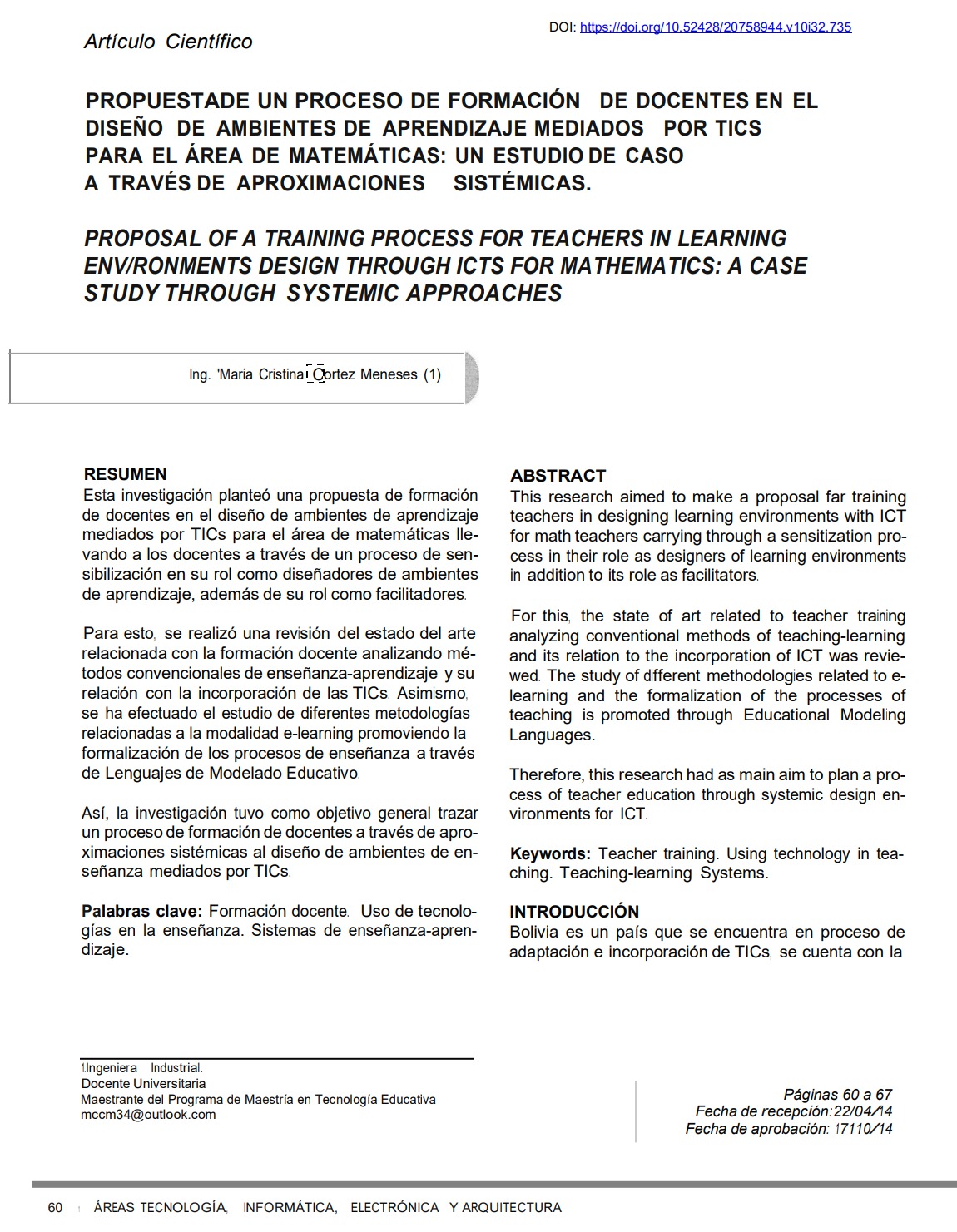
Downloads
Published
How to Cite
Issue
Section
License
Copyright (c) 2014 María Cristina Cortez Meneses

This work is licensed under a Creative Commons Attribution 4.0 International License.
Authors who publish with this journal agree to the following terms:
- Authors retain copyright and grant the journal right of first publication with the work simultaneously licensed under a Creative Commons Attribution License 4.0 that allows others to share the work with an acknowledgement of the work's authorship and initial publication in this journal.
- Authors are able to enter into separate, additional contractual arrangements for the non-exclusive distribution of the journal's published version of the work (e.g., post it to an institutional repository or publish it in a book), with an acknowledgement of its initial publication in this journal.
- Authors are permitted and encouraged to post their work online (e.g., in institutional repositories or on their website) prior to and during the submission process, as it can lead to productive exchanges, as well as earlier and greater citation of published work.





